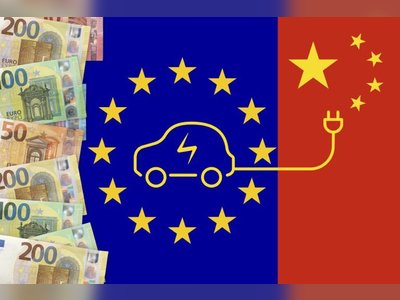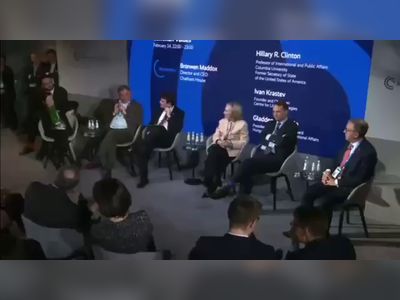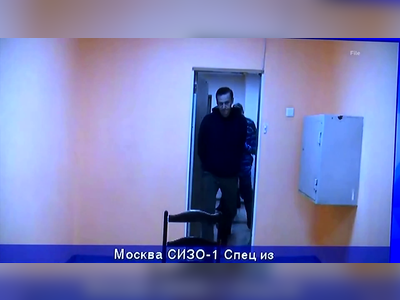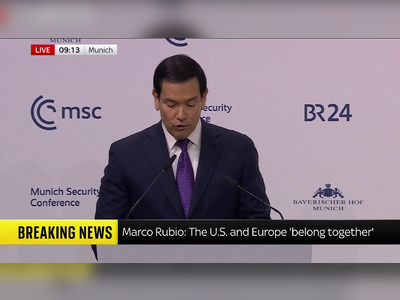
Back to remote? Sea of empty desks prompts jitters in Brussels
Working from home is the new normal in the European Union’s institutions, but not everybody is happy about that.
As workers at the European Commission, Council of the EU and European Parliament return from their holidays, many will not be returning to their desks in Brussels’ EU quarter. “Hybrid working” — a combination of remote work and office presence — is one of the few responses to the COVID-19 pandemic that institutions have kept in place.
But the home-working trend is fuelling worries that remote working is changing Brussels for the worse. European officials, accustomed to a culture in which status has traditionally been reflected in the allocation of office space, bristle at being asked to hot desk. Lobbyists grumble that officials keeping away from the office—and in many cases, from Brussels altogether—makes their jobs harder, as virtual meetups aren’t as fruitful as in-person ones.
Even trade unions are joining the hubbub. If people who go to the office progress more quickly in their careers, or if the rules are applied unevenly, they warn, job conditions could become less fair and less equal.
“There’s a risk that the real change of culture promoted by the Commission might not take place because telework will not be applied evenly,” said Cristiano Sebastiani, a Commission official and president of Renouveau et Démocratie, one of the largest unions representing EU civil servants. “A two-speed Commission is what we would like to avoid.”
New rules put in place by the Commission in April 2022 make teleworking the norm, but leave just how much up to individual managers. “Up to 20 percent of teleworking is a right, between 20 percent and 60 percent of teleworking can be agreed with the line manager,” and “more than 60 percent may be authorized when necessary in the interests of the service,” according to the latest guidance.
More permanent teleworking provisions were also established in the European Parliament for staff “who perform tasks that can be carried out remotely,” according to updated internal rules. Employees are allowed to work remotely one day per week, and can ask permission from their managers to work two or three days per week. MEPs are allowed to participate in committee meetings remotely but they must attend in-camera meetings, closed-door “trilogue” negotiations with their Council colleagues, as well as their monthly plenary sessions in Strasbourg in person.
While most unions have welcomed the new teleworking rules, they warn that some managers may be better at implementing them than others. “We come from a culture where seniority was often determined by the number of windows in your office or the number of square meters or furniture you were allowed to own,” Sebastiani said. He warned that loose teleworking rules could widen the gap among managers between “the young ones who are thrilled, and the more senior ones who are struggling with telework.”
Sebastiani said he and his colleagues have already started collecting feedback and complaints from staffers to see how teleworking rules could be improved.
One Commission official who asked to remain anonymous to be able to discuss work conditions pointed to disparities among departments — known as the Directorates-General (DGs) — that are already taking root.
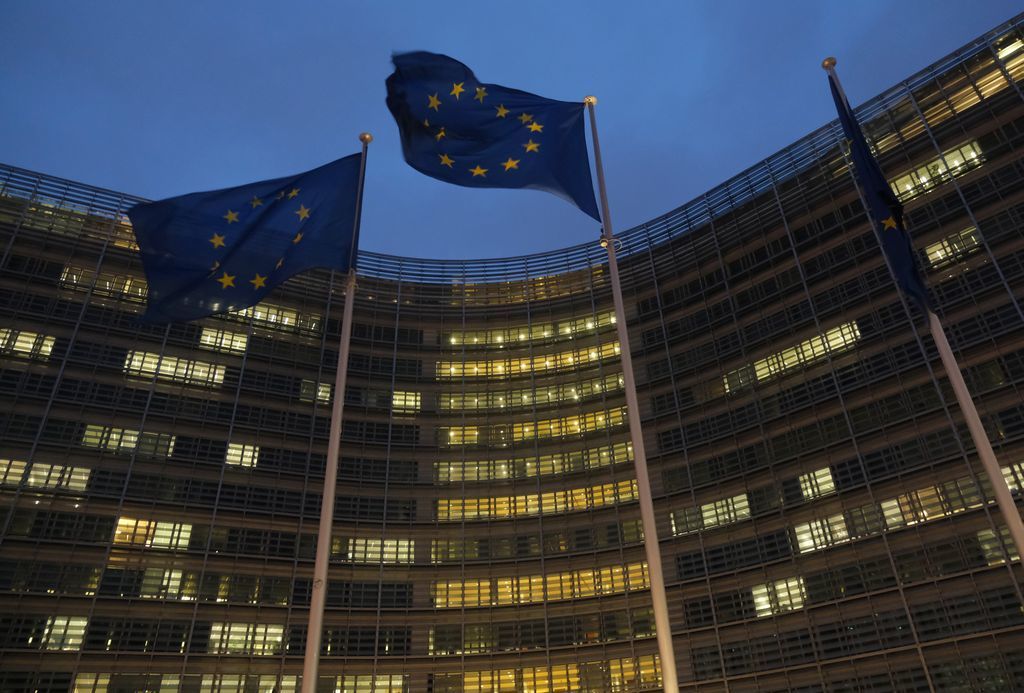 Another Commission official said the approach to telework often varies by nationality
Another Commission official said the approach to telework often varies by nationality
“In some DGs like COMP [the EU’s competition authority] everybody is coming back, it’s even not well seen to be at home,” the official said. “At JUST or at EMPL, which leans more towards respecting human rights, people can stay at home,” the official added, referring to the “Justice and Consumer” and the “Employment, Social Affairs and Inclusion” DG.
Another Commission official said the approach to telework often varies by nationality. “The French and some others think that to be efficient at work, you often have to stay at your desk the longest you can,” the official said. “In my team, you come if you really have a reason to come … we are treated responsibly and telework is no longer seen as ‘farniente.’”
One head of unit at the Commission praised telework for increasing the productivity and work-life balance of his team. He said his unit had recently decided to gather in the office once a week, generally on Tuesday. But he acknowledged some “differences of management styles” with the “very senior, experienced, old managers” at DG level, who are less involved in the work schedules of employees than heads of units.
For lobbyists, teleworking risks robbing them of their most valuable resource: direct contact with those whose hands are on the levers of power. “If you’ve never really lived and breathed Brussels, it’s difficult to be a true insider,” said Mark Dober, founder of Dober Partners Executive Search and Consultancy.
As an illustration of the premium placed on direct contact, he cited a request by a recent client who was looking to hire somebody who didn’t just live in Brussels, but whose kids also “go to the crèche where the other parents are in the Commission.”
There’s no set requirement for in-office time for Rud Pedersen Public Affairs’ 60-person Brussels office, said managing partner James Stevens. Staff can stay home if they need to write a report, but the “majority” of their time should be at the office, and they’re expected to “take personal responsibility” to ensure their telework doesn’t negatively impact the rest of the team.
There is a “client expectation that our team is out there,” gathering information in the corridors of power, said Stevens. If there’s a problem, clients ask their consultants to “show up at our office tomorrow,” he said. “That’s kind of hard to do if you’re working from Spain.”
Given the social nature of lobbying, Stevens predicted that towns like Brussels and Washington will resist the more persistent shift toward hybrid work happening elsewhere. “Those people that entered public affairs during COVID” are in for a pleasant surprise, Stevens said: “It’s so much more fun when you can do things in person.”



